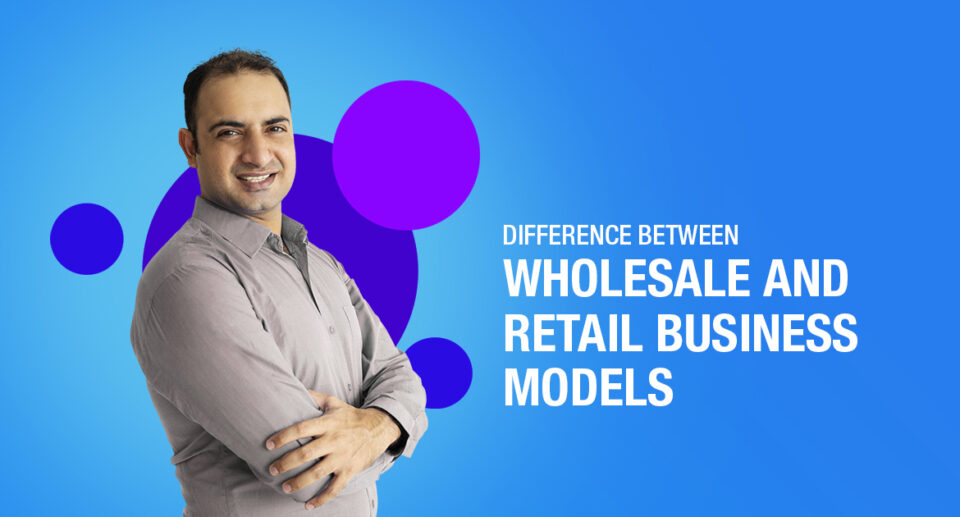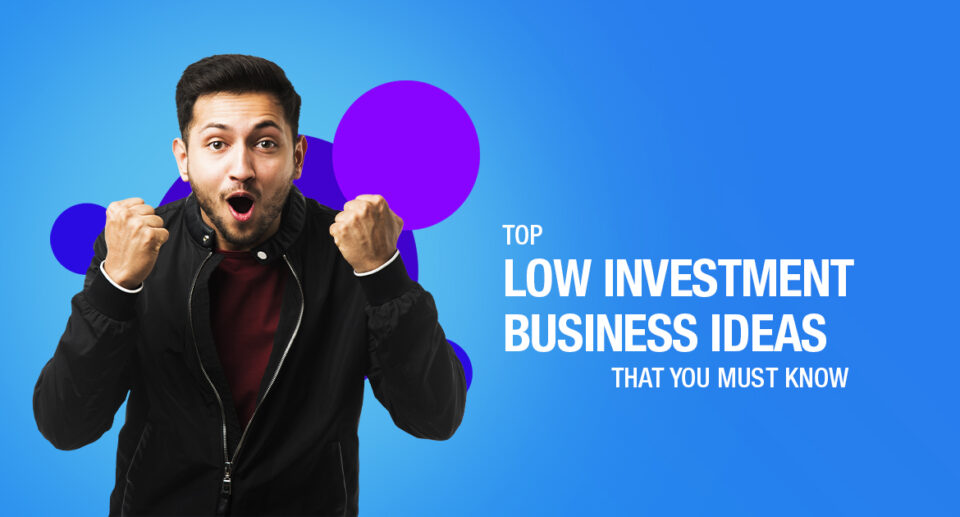Difference Between Wholesale and Retail Business Models

To understand the difference between Wholesale and Retail Business models, we first need to understand the meaning of Wholesale and Retail.
Let’s say, you need to buy some clothes. You go to the local market. Over there, you see two stores – one, a wholesale store, while the other one, a retail store. In spite of the fact that the wholesale store sells at a lower price, you find more people buying from the retail store.
Why is this happening? More importantly, why is there a difference between wholesale and retail prices?
The answer lies in the way both these stores operate. In other words, it’s the business model that determines the prices, the customer type, and the number of customers pouring into the store. Let us understand what is wholesale and retail first.
A wholesale store owner buys the products in bulk from the manufacturer and sells them to someone who needs them in large quantities. So if you are not buying in bulk, you will either be not entertained by the wholesaler or not get the products at the discounted price.
This is because a wholesaler works on lower margins and higher volumes; they prefer renewing their stocks as soon as possible over building up a loyal band of customers for their store.
A retail store, on the other hand, offers a better customer experience than a wholesale store. They predominantly cater to the end customers and not a business. They do not care whether a customer purchases one or hundreds of units.
Their goal is to build a brand name, attract more customers and retain them in the long run. To do this, they offer services like personalized attention, well-maintained stores, a huge variety of products to choose from, etc.
For someone who is new to the business world, it is essential to understand all such key differences between the two models. A wrong choice can turn catastrophic to the business. We have seen multiple stores getting closed in the past just because the model was not suited for their business.
As a store owner, you should weigh all the parameters and choose a business model based on your target audience, anticipated margins, the type of products you sell, etc. Now, before we understand the difference between wholesale trade and retail trade, let us look into all the key players in a typical supply chain –
- Manufacturers produce finished goods from raw materials by using various equipment.
- Distributors have direct relationships with the manufacturers. They distribute the products to wholesalers and retailers.
- Wholesalers purchase the products in large quantities either from the manufacturer or the distributor and sell them to retailers. In many instances, the distributor is also the wholesaler from whom the retailers buy directly.
- Retailers stock products in required quantities and sell them directly to consumers.
- Consumers are the final purchasers for whom the products are made.
Let us now dive into the details of the two models.
What is a Retail Business Model?
A retail business model involves buying goods from wholesalers or distributors and directly selling them to consumers. The grocery store that you see right across your street is a typical retail store. The electrical store where you bought your last fan is a retail store.
In fact, most stores that you see in your area without the words ‘wholesale’ implicitly mentioned are probably retail stores. Many retailers also have their own eCommerce sites to sell directly to customers.
If you are picking a retail model, then you need to answer two fundamental questions –
What is the value proposition you are offering?
You need to find out how you will differentiate yourself from your competitors. In other words, what will you do to make your customer’s shopping experience memorable and get them to come back to your store again and again?
It could be by offering attractive prices, free delivery, or a wide variety of products to choose from. Whatever it be, decide your value proposition first and enter this model.
How do you plan to operate?
Just selecting a business model doesn’t mean your job is done. You also need to define how your retail store will operate. For instance, what is the price you are willing to pay to the wholesaler for purchasing the products? How many employees do you need? What is the margin you expect, etc.?
You also need to worry about ensuring a seamless flow of inventory to your store as end customers might switch to your competitors if you go out of stock regularly.
Advantages of Picking a Retail Business Model
When a business owner chooses a retail business model, they get to enjoy a host of benefits such as:
Low Capital Investment
A retail business is a low-capital investment business. Since you will be purchasing products in smaller quantities as a retailer, the overall expenses come out to be way lesser than a wholesaler’s. You can also save on storage space as the number of products to store is less.
Liquidity
This is probably the biggest advantage of choosing this model. A retail model is an instant transactional business. Therefore, retail store owners will have more disposable money in their hands and enjoy a higher level of liquidity compared to wholesalers.
Accountability
As a retailer, you are only an intermediary selling the product of the manufacturer. In case of any fault with the product, the manufacturer is directly responsible for it. The manufacturers will have to replace the products or face the consequences of supplying defective products.
Disadvantages of Picking a Retail Business Model
There are also a few drawbacks to picking the retail business model. They are –
Highly dependent on location
As retailers mainly deal with the end consumers, it is important that they set up their stores where the customers visit often. Unfortunately, most of these are prime commercial areas where rent is often sky-high.

If you are the owner of the premises, then well and good; else, you need to be ready to allocate a sizable budget for the rent.
Heavy competition
A retail business is such that similar types of products are sold by multiple store owners in the same location. This creates a highly competitive environment where it gets challenging to sell the products and draw the customers’ attention.
High marketing budget
Due to high competition, you need to do extensive marketing to attract customers. This directly translates to a bigger budget for your store, impacting your final margins.

What is a Wholesale Business Model?
As highlighted at the beginning of the post, in a wholesale business model, the business owner buys products directly from the manufacturer or a distributor and sells them to the retailers at a negotiated price. But do note that wholesalers can also sell their products directly to end consumers.
There is also a common misconception that wholesale business is becoming obsolete or outdated as it is being replaced by newer and more disruptive direct-to-consumer business models. But the truth is that a wholesale business is still highly relevant today. Thousands of retailers, especially in sectors like the FMCG sector, still rely on wholesalers to run their businesses.

Now how does a wholesale business model work? Let’s find out.
Wholesalers usually build trusted, long-term, meaningful relationships with their suppliers. And this ensures on-time delivery of large quantities of products at a fair price, keeping quality as the prime priority.
Since wholesale businesses deal with both retailers and suppliers, it is important for them to have a good grasp of the latest market trends. This will make it simpler for wholesalers to sell new products or upsell or cross-sell products.
A wholesale business can also be taken online. Alibaba and Indiamart are classic examples that are your quintessential B2B marketplaces. They provide diverse products to businesses and individuals at wholesale prices. These kinds of B2B marketplaces are becoming popular day by day among small businesses and act as a centralized platform for them to source their products.
Advantages of Picking a Wholesale Business Model
Here are the reasons why business owners should pick the wholesale business model –
Location
Wholesalers can choose to set up their businesses at any location as they do not have to meet the end consumers. The retailers will either visit the location directly or send their pickup trucks to collect the products. And the best part – wholesalers do not have to pay a massive rent in spite of needing a large storage space as they can set it up even outside the prime areas.
Competition
Compared to the retail business model, there is not much competition in the wholesale sector, mainly because each wholesaler deals with a particular product line from a specific manufacturer in an area. Also, there are a few areas where wholesalers can enjoy the benefits of a monopoly.

Marketing Budget
Wholesalers do not have to spend a huge amount of money on marketing to build their brand name. This is because most retailers who need to purchase your line of products will directly approach you.
Discounts and Offers
Wholesalers enjoy large discounts since they buy the products in bulk and that too directly from the manufacturers. Also, they can participate in several schemes that offer great discounts over and above the existing ones they get for buying in bulk.
Disadvantages of Picking a Wholesale Business Model
Here are a few challenges you might face in a wholesale business model:
Capital Requirement
The wholesale business is all about bulk purchasing. And you need a huge capital to purchase the products in bulk. You might also have to pay for the logistics to transport goods to the retailers.
Space
Wholesale businesses need huge space to store the bulk quantity of products that they intend to sell. Though you might not have to pay a huge amount of rent as you have the flexibility to set up your store anywhere, you will still end up paying a good amount due to the size of the store and its maintenance charges.
Responsibility
Since wholesalers buy goods in huge volumes, there are high chances of some products getting damaged either during storage or transit. In worst cases, some products might expire/perish because they remain unsold for an extended period of time.
Difference between Wholesale and Retail Business Models
Let’s now summarize the main difference between a wholesale and retail business model.
Accessibility
Retail distribution is mostly local unless you have an online store. In other words, retail businesses operate within a city, town, or village. On the other hand, wholesalers can cover larger territories by dealing with different types of retailers(locally, nationally, and internationally).
It’s essential for retailers to understand their local market and do some intensive research, as this will be the lifeblood of their business. And wholesalers need to think about getting access to larger urban areas where they can find retailers.
From there, they can expand and be competitive in the national and international market to distribute their raw products.
Also Read: Top Business Ideas in Karnataka with Low Investment
Margins
As retailers sell directly to customers, they usually enjoy higher gross margins. However, retailers have much higher operational costs because they have to focus more on setting up their stores at prime locations and on offering world-class customer service to run the business successfully. This means their net margins take a hit.
On the other hand, wholesalers have lower gross margins since the products are sold in bulk at a lower per-unit price. However, the good part is that they enjoy reduced operational costs as they do not have to focus on setting up their store at prime locations or spend a lot of money on marketing.
Primary Focus
Retailers need to focus primarily on how to get more customers. They need to make sure that there is a continuous stream of people visiting their store and that there is a steady inflow of cash to run the business smoothly.
In contrast, wholesalers need to take care of both distribution and logistics. They should focus on efficiently structuring their logistics and operations instead of focusing on ways to find customers.

Price Fluctuations
In a typical supply chain, retailers don’t have much control over price fluctuations. In contrast, wholesalers have a certain level of hold on prices. The reason is simple. They have more purchasing power as they tend to buy in bulk.
Which Model is Right For You?
It’s totally up to entrepreneurs to choose the right model for their business. They need to consider multiple factors before choosing one. For instance, they need to evaluate how much control they want to have over their brand, how much face-to-face interaction with the customer they want to have, how much margin they would like to have, and many more factors.
When you become a retailer, you will be in charge of the end-to-end operations of your business, right from marketing to order fulfillment. In other words, it’s a huge responsibility to be a retailer as you have to wear multiple hats, such as CEO, marketer, or even a salesman. This also means you can decide how much to sell the product for and to whom.
And if you plan on selling your branded products, you have the additional responsibility of product ideation and positioning. In summary, the retail model is ideal for entrepreneurs who enjoy being creative and who like to be involved in almost every aspect of the supply chain process.
On the other hand, a wholesaler need not be involved in direct customer marketing or sales. They don’t have to worry about the operational costs and storefront maintenance like a retailer.
However, as you have seen in this post, there are a lot of logistics involved in a wholesaling business. A wholesale business is ideal for those entrepreneurs who like to proactively coordinate with suppliers and consumers and build long-term relationships.
Lastly, there are some smart business owners that manage both retail and wholesale businesses simultaneously, thus enjoying the perks of both these models.

Maximize Your Online Business Potential for just ₹79/month on Lio. Annual plans start at just ₹799.
How Can Lio Assist You?
One app for all your data. One phrase tells us a lot. Lio is an efficient mobile application that can assist emerging businesses and entrepreneurs in various ways.
Lio gathers all the data and files that you want, arranges them to make them seem attractive and easy to go through, and you can access them from your android device whenever and wherever you want.
This app can be used to organize important reports systematically, sales and business reports and plans, details of employees, duties of employers, financial data, details of customers, profit and loss proportion tracking, etc. You can manage your business without much hassle.
The most noticeable convenience provided by Lio is that it saves your money and time since a simplified source of keeping track of and checking up on company data and reports helps an individual spend lesser time scurrying through a plethora of unsynchronized and disorderly sources of data.
Business leaders may use Lio to keep track of various data, including employee details, news, and other such details. Lio also has the option to allow access to multiple recognized users so that individuals can get access to the documents whenever they want.
Lio is definitely for the win and using it for your business is only going to make your journey smooth and easy to track.
Step 1: Select the Language you want to work on | Lio on Android

Step 2: Create your account using your Phone Number or Email Id.

Verify the OTP and you are good to go.
Step 3: Select a template in which you want to add your data.

Add your Data with our Free Cloud Storage.
Step 4: All Done? Share and Collaborate with your contacts.

Conclusion
Whichever business model you are embracing, it is important to constantly adapt to the latest trends and alter your operations accordingly. This ensures that you stay on top of the retail ecosystem in the long run. You would also need the support of technology to succeed.
During the early stages of your business, you need not spend money on expensive software when you can use applications like Lio, which offers a variety of templates to track stock levels, finances, and so on. To know more about us, click here.








10 Comments
Please let me know whether distributorship is a successful and profitable business.
Hello Akshara,
Distribution is lucrative business potential for new entrepreneurs in addition to manufacturing and retail. According to studies, small-scale distributorship is seen as a successful business opportunity worldwide, particularly in India.
A distributorship is often a contract between a manufacturer and a distributor wherein each party is required to achieve specified objectives in order to uphold their end of the bargain.
You went into great detail to describe how the retail and wholesale business models differ from one another. Loved it! Thank you a lot!
Hello Tanuja,
Thank you so much for your kind words.
I am delighted you found this article educational.
Thank you for reading!
Could you pls tell me how many different kinds of wholesalers there are? Thank you very much.
Hello Bryon,
Here are a few different kinds of wholesalers:
1. Manufacturer Wholesalers
2. Retail Wholesalers
3. Pure Wholesalers
4. Agents and Brokers
5. Assemblers
6. Merchant Wholesalers
7. General Merchandise Wholesalers
Just loved how you listed down the key stakeholders in a normal supply chain… made it look so simple yet precise for us.
Hello Tiya,
Thank you so much for your warm words.
I am delighted that you found this article to be informative.
The part of this article that I enjoyed the most is that it encourages in-depth reflection and enables us to select the model that is ideal for us. I appreciate your efforts.
Hello Arpita,
Thank you so much for your kind words.
I’m elated you found the article intriguing.
Enjoy your reading.